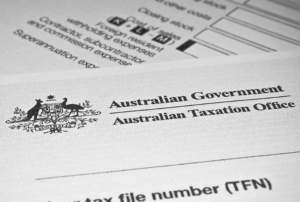Everett’s assignments do not work. Instead, consider a Service Trust to overcome the Personal Service Income rules.
Escape Personal Service Income rules (PSI) with a Service Trust Agreement
Because of Personal Service Income rules (PSI) it is hard for professionals such as accountants, lawyers, doctors and dentists to share profit with their spouse and Family Trust. The problem is that:

- the professional earns, say, $500k profit and pays almost half of that in tax; while
- the spouse stays at home and earns nothing. Therefore, wasting their low marginal tax rates
The two methods to deal with PSI are:
- Everett’s assignments; or
- Service Trust
1. Everett’s assignments
In Everett’s case, the professional transferred part of his partnership interest to his wife for a few thousand dollars. The model later developed to ‘selling’ part of the partnership to a Family Trust. It is a common practice.
Everett assignments are mechanisms that partners in a partnership use to share the business profits with associated entities. It came from FCT v Everett (1980) 143 CLR 440. This is a 1980 High Court decision. It established that a partner in a firm assigns part of their stake in the underlying assets of that firm. Therefore, the spouse and family trust get part of the future income.
In the ATO’s old rulings on income splitting and partnership interests, the ATO states that Part IVA does not apply to an Everett assignment. But this is provided it constitutes a ‘no strings attached’ disposition of the partnership interest. All rather too loose language for a black letter tax lawyer such as myself. The ATO has revisited this position. It now considers Part IVA as capable of applying to such assignments. Legal Consolidated agrees.
I have never liked Everett’s assignments. I have never been involved in such an arrangement. The ATO has finally caught up and now agrees with me.
While the ATO has no power to change the law it sanctioned Everett’s assignments arrangement under the Guideline: ‘Assessing the risk: Allocation of profits within professional firms‘. That Guideline was thankfully withdrawn in 2017.
2. Service Trusts together with Service Trust Agreements
It is common practice for businesses, not just professionals, to use a trust (service entity). A service trust is often a:
- Family Trust – for a single business owner
- Unit Trust – if 2 or more business owners
- Company – not common as profit is trapped and there is no CGT relief. But useful if you have no family because of the 30% tax rate
Build these 3 types of service trusts on our website. All are fully structured to take advantage of Fortunatow v FCT [2019] FCA 1247.
Service Trust as a ‘second business’ to help with PSI
The service trust is the second business. The service trust provides services to the business. It charges a fee for providing those services. Service trust profits are shared with the business owner’s spouse, children and family. They pay tax at a lower marginal tax rate. Therefore, the service trust saves tax. It helps with superannuation benefits and the spreading of income to family members.
But it is not enough to have just a service trust. You need an agreement between the business and the service trust. This agreement is called a Service Trust Agreement. The Service Trust Agreement is a contract. It allows the service trust to supply equipment, staff, receptionist, tools, factory, cleaning, marketing, corporate logo creation, premises and administration services to the business.
Read about and build a Service Trust Agreement here.
3. An example of “personal service income” – PSI
FCT v Fortunatow [2020] FCAFC 139
The Full Federal Court upheld the Commissioner’s appeal from the decision of a single judge. The single judge held (reversing a decision of the AAT) that the “unrelated clients” test contained in the personal services income provisions of ITAA97 had been met.
The taxpayer was a business analyst and was at all relevant times the sole director of Fortunatow Pty Ltd (company).
Through contracts between the company and various recruitment agencies, the taxpayer provided services to organisations such as government departments, utilities, defence contractors, universities, banks, and large corporations.
In the 2012 and 2013 income years, income of $166,000 and $121,000, respectively, were returned in the company’s income tax returns. The income related to the provision of the taxpayer’s services to eight different end clients during those two income years. No remuneration was paid by the company to the taxpayer and he returned no income in his personal income tax returns for the relevant years.
Facts of FCT v Fortunatow for PSI and Service Trust
The company transferred income generated by the taxpayer’s services to the Fortunatow Family Trust (the family trust) which was characterised as “management fees” payable to the family trust. These fees were claimed as deductions and had the effect of reducing the company’s taxable income to nil. The trust income was offset against the trust’s rental losses. The Commissioner included the income of the company in the taxpayer’s assessable income on the basis that the company’s income was personal services income. There was no dispute that the income was
personal services income, but the taxpayer contended that the company was conducting a personal services business within the meaning of s 86-15(3) ITAA97.
The taxpayer relied on the “unrelated clients test” in s 87-20 ITAA97. The AAT rejected the taxpayer’s contention and, on appeal at first instance, Griffiths J reversed the decision of the AAT. As indicated, the Commissioner’s appeal from that decision has now been allowed by the Full Federal Court.
Does the “unrelated client test” work for Everett’s assignments?
The taxpayer contended that he met the requirement in s 87-20(1)(b) ITAA97 (that the services were provided as a direct result of the individual or personal services entity making offers or invitations to the public at large or to a section of the public to provide the relevant services) because of his active profile on LinkedIn and his marketing by word of mouth at industry functions. He said that he kept his LinkedIn profile up to date and that he included a note that the company would be available for a new assignment on a certain date, namely, after completion of his current assignment. The taxpayer contended that his LinkedIn profile was a form of advertising.
Although the AAT accepted that the taxpayer’s advertising on LinkedIn constituted the making of an offer or invitation to the public, it concluded that s 87-20(2) ITAA97 operated to deny the taxpayer’s claim. That subsection provides that the individual or personal services entity is not treated, for s 87-20(1)(b), as having made offers or invitations to provide services merely by being available to provide the services through an entity that conducts a business of arranging for persons to provide services directly for clients of the entity.
The decision of FCT v Fortunatow for PSI
The Full Federal Court said that it was necessarily implicit in s 87-20(1)(b) that the client has decided to obtain the services. Without such a decision, the services could never have been provided. Accordingly, the inquiry as to whether the services were provided as a direct result of the making of offers or invitations invariably involved an inquiry about what caused the client’s decision to obtain the services.
If the client’s decision to obtain the services was a direct result of the making of offers or invitations, the requirements of s 87-20(1)(b) would be met. A direct causal effect might be shown where it is established that an invitation or offer was comprehended by the client, in the sense of received
and digested, and that it had at least some influence on the client’s decision to obtain the services. The degree of influence required would depend on all of the circumstances.
If the requirements of s 87-20(1)(b) are satisfied concerning two or more clients who were not associates of each other or associates of the individual or the personal services entity, s 87-20(1)(a) would be satisfied and the “unrelated clients test” would be met.
The Full Federal Court said that, as the ATO submitted, an offer or invitation which is only made to an intermediary, and is not passed on to and plays no part in, the client’s decision to procure the relevant services,
cannot be said to have directly resulted in the provision of the relevant services. This is because the offer or invitation loses its direct causal effect at the level of the intermediary, and the provision of the services can only be seen as the direct result of some other factor such as the intermediary’s
recommendation to the client.
On the facts as found by the AAT, none of the clients made their decisions to engage the services of the taxpayer as a direct result of any offer or invitation constituted by the taxpayer’s LinkedIn profile.
The Full Federal Court also rejected an argument advanced by the taxpayer that the Commissioner’s appeal was not competent.
ATO Guidance on PSI: TR 2022/3
The ATO’s Taxation Ruling TR 2022/3 gives us the ATO’s views on personal services income (PSI) rules.
TR 2022/3 combines and replaces the ATO’s previous rulings on the meaning of :
- personal services income (PSI) (TR 2001/7); and
- personal services business (PSB) (TR 2001/8).
Both of these earlier rulings are withdrawn. Interestingly, while withdrawn the ATO claims the principles in the old rulings are unchanged. From a close reading, Legal Consolidated agrees. Nevertheless, Legal Consolidated’s documents are amended to take full advantage of the ATO’s position in TR 2022/3:
Why did Legal Consolidated update its Service Trust Agreements if the ATO changed nothing in the PSI?
Have another read of TR 2022/3. The ATO has reviewed the case law since the old two rulings were released. Also, these ATO rulings are not withdrawn:
These two rulings are read with TR 2022/3. In particular, TR 2022/3 sets outs:
- the meaning of PSI. This is that ‘income’ that is mainly a reward for an individual’s efforts or skills (or would mainly be such a reward if it was the individual’s income). The ATO says “mainly” means over 50% and that what needs to be examined is the substance of the arrangement between the parties.
- income that does not qualify as PSI. For example, income is mainly generated from the supply or sale of goods, or from supplying and using income-producing assets, and income is generated from an entity’s business structure.
- working out whose PSI it is. The ATO says that where a test individual works through a personal services entity (PSE), the contract for services is with the PSE and payment is made to it. However, unless the PSB requirements are met, the net PSI generated under that contract is wholly attributable to the test individual. This is the case even if the PSE engages another individual to assist the test individual with principal work.
- But, if an individual who is not a test individual of the PSE mainly generates the income under the contract, the income will not be the test individual’s PSI. If multiple test individuals work together via a PSE, each discrete amount of income the PSE receives under each contract needs to be examined to ascertain the test individual who mainly generated that income. This is done by an analysis of contracts and invoices.
- the meaning of a PSB and the PSB tests (the results, unrelated clients, employment and business premises tests).
‘Unrelated clients’ test vs Everett assignment
Particular attention is paid to the unrelated clients’ tests and whether invitations or offers are made to the public. The Ruling notes that under FCT v Fortunatow [2020] FCAFC 139, the invitation or offer “must operate directly on the client, not the intermediary”.
Applying for a PSB determination. The ATO needs to be satisfied that, but for unusual circumstances, the test individual or PSE would have met, or could reasonably be expected to meet, the test(s) applied for:
- the effect of the PSI rules, eg certain deductions cannot be claimed; and
- PSI received by a PSE is attributed to the test individual.
Does Part IVA apply to Personal Services Income?
Not a PSB or breaching the PSI rules. Think you are in the clear?
The ATO may seek to apply Part IVA. (This is the general anti-avoidance provision in the Income Tax Assessment Act 1936.) This is if the dominant purpose of the arrangement is to obtain a tax benefit. This is by diverting, alienating or splitting an individual’s PSI or retaining profits in the PSB. The ATO looks at:
- whether the salary paid to the test individual is appropriate for the skills provided.
- with the income received by the PSB for those services.
- whether the PSB distributes income to associates (and not to the test individual who provided the services) – have a read of the ATO’s example 41 – this is personal services via a family trust.
- whether any salary paid to associates by the sole trader or PSB is not equal to the skills exercised and services provided, and the income received by the sole trader or PSB is for services performed by the test individual.
TR 2022/3 includes 41 useful examples and a flow chart to demonstrate the operation of the PSI rules.
Does Legal Consolidated advise on Service Trusts and PSI?
No, we do not. Speak with your accountant and financial planner. We can help you build the Service Trust (e.g. Family Trust) and Service Trust Agreement on our website. But it comes with no legal advice. Start the building process for free. Read the hints. It is highly educational.
Telephone us and we can review the answers with you. But start the free building process of the Service Trust Agreement first. The building process is highly educational and answers most questions.
Everett assignments ‘dropping like flies’ as ATO cracks down
While the big end of town has copped the brunt of the ATO’s enforcement efforts on the income-splitting arrangements, smaller firms are not immune.
Published on https://www.accountantsdaily.com.au/ by Nick Wilson • 20 February 2024
Everett assignments continue to be a favourite tax-saving mechanism among partners but recent moves by the ATO suggest the legal basis might be flimsier than once thought, according to Legal Consolidated partner, adjunct professor, Brett Davies.
“The High Court has not said that all Everett assignments are Kosher. It merely said the Everett assignment in that particular court case back in 1980 is acceptable on that particular set of facts,” he said.
The case was Federal Commissioner of Taxation v Everett [1980] HCA 6 and it established a precedent that the ATO has been narrowing for years.
“No two set of facts can ever exist, there’s always some microscopic difference,” said Dr Davies.
It’s these microscopic differences the ATO has been relying on in its recent enforcement actions, said Dr Davies.While, to date, the ATO has mostly targeted the use of Everett assignments among larger companies, the agency has demonstrated an increasing willingness to take action against smaller firms, he said.Dr Davies gave the example of a small engineering practice in Victoria that crossed the ATO’s radar.
“They did something the ATO didn’t like. It was found to be compliant but [the ATO] kept hunting and hounding this poor engineering company and they got them on the Everett assignment.”
“Very few people are saints,” he added, “and the ATO, when they’re so minded, will continue to look at the behaviour of taxpayer they don’t like until they find a blemish. And a common blemish is the Everett assignment.”
An Everett assignment is a kind of legal income-splitting in which a partner in a firm assigns part of their stake in the firm to a third party, usually a spouse or family member, to save on taxes.
Professional service income (PSI) rules make it difficult for lawyers, accountants, doctors and other professionals to share their personal income. Everett assignments are a way for professionals to take advantage of the low marginal tax rates of other family members.
The problem is, Everett assignments are “high risk,” said Dr Davies. “They’re artificial and therefore at risk of attack…in recent years the ATO has attacked them with gay abandon.”
Recently, PwC announced it would no longer allow its partners to use the assignments despite maintaining that their use of the assignments had been within ATO guidelines. Deloitte banned its partners from using the assignments “about a decade ago” in response to increasing scrutiny from the ATO.
The ATO has published a risk assessment framework to guide the use of Everett assignments. The framework applies only to assignments that are “commercially sound and [that] do not exhibit high-risk features.”
While the ATO has laid out certain circumstances under which an assignment might be “high-risk” and therefore not protected by legal precedent, Dr Davies said the conditions are largely unclear.
As many as one-third of PwC’s partners make use of Everett assignments. The company made it clear that the ban would not affect those already taking advantage of the income-splitting strategy, it would simply prohibit others from joining in.
The ATO changed its approach to the assignments in 2020, claiming it was “concerned about high-risk arrangements in all professional firms.” The agency said it anticipated “increased enforcement action.”
According to Dr Davies, since the ATO changed course, Everett assignments have been “dropping like flies.”
The ATO’s approach is not punitive, said Dr Davies. They are not punishing individuals for using Everett assignments, instead they are ordering repayments for any avoided tax payments.
“We’ve seen the ATO ask for every dollar saved under the Everett assignment going back several years,” he said.
“I’m seeing less and less professional services businesses setting up the assignments, and I’m seeing more attacks on the ones that are still left in play.”
Business Structures for Personal Services Income, tax and asset protection
Family trust v Everett’s assignments
- Family Trust Deed – watch the free training course
- Family Trust Updates:
- Everything – Appointor, Trustee & Deed Update
- Deed ONLY – only update the Deed for tax
- Guardian and Appointor – only update the Guardian & Appointor
- Change the Trustee – change human Trustees and Company Trustees
- The company as Trustee of Family Trust – only for assets protection?
- Bucket Company for Family Trust – tax advantages of a corporate beneficiary
Unit trust vs Everett’s assignments
- Unit Trust
- Unit Trust Vesting Deed – wind up your Unit Trust
- Change Unit Trust Trustee – replace the trustee of your Unit Trust
- Company as Trustee of Unit Trust – how to build a company designed to be a trustee of a Unit Trust
Corporate structures and Everett’s assignments
- Partnership Agreement – but what about joint liability?
- Incorporate an Australian Company – best practice with the Constitution
- Upgrade the old Company Constitution – this is why
- Replace lost Company Constitution – about to get an ATO Audit?
Service trust and Independent Contractors Agreements
- Independent Contractor Agreement – make sure the person is NOT an employee
- Service Trust Agreement – operate a second business to move income and wealth
- Law firm Service Trust Agreement – how a law firm runs the backend of its practice
- Medical Doctor Service Trust Agreement – complies with all State rules, including New South Wales
- Dentist Service Trust Agreement – how dentists move income to their family
- Engineering Service Trust Agreement – commonly engineers set up the wrong structure
- Accountants Service Trust Agreement – complies with ATO’s new view on the Phillips case





